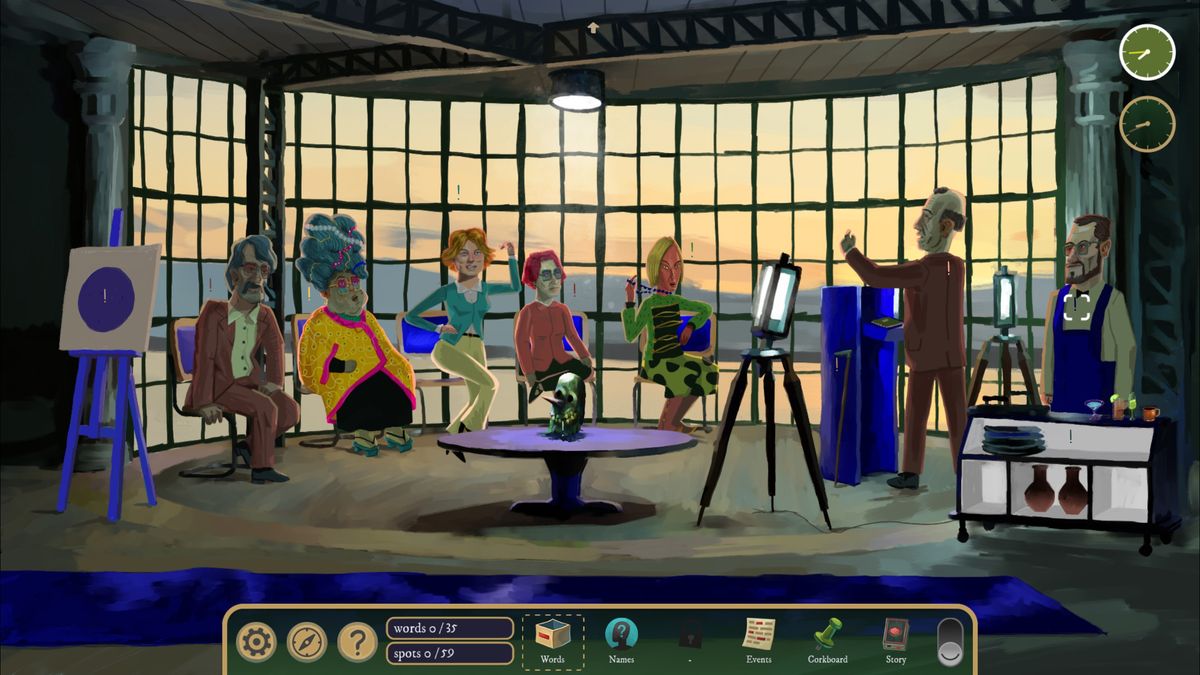12DOVE Verdict
The Rise of the Golden Idol wonderfully evolves on the original with some truly devious cases that empower you to feel like a genius as you piece everything together and read between the lines. Loads of details make this best played with a notebook to hand, each case stretching you to think in genuinely fresh directions.
Pros
- +
Evolves on the first game while feeling standalone
- +
Gorgeous artwork that's important to each mystery
- +
Simply some of the best mystery solving there is
Cons
- -
Margin of error can vary in later cases
- -
Pop-up boxes can overwhelm
- -
Solutions sometimes a bit picky
Why you can trust 12DOVE
A picture can paint a thousand words, but what if you only needed a few correct ones? That's the concept behind both the original The Case of the Golden Idol, and this new standalone sequel, The Rise of the Golden Idol. Presented with moments of disaster frozen in time, it's up to you to deduce what's happening, and what led to the moment in question.
Set in an alternate history similar to but not quite like our own, The Rise of the Golden Idol moves on from the 18th century to the 1970s. Gone are boats and carriages; replaced by a groovy world fuelled by TV, paranoia, drugs, and a vastly uneven and cruel class system. You're a kind of omnipresent and unexplained detective that's capable of rummaging around scenes to your heart's content to solve each case. Usually a violent act has occurred, and you're able to go through people's pockets, eavesdrop on bits of dialogue, and peer at anything that takes your interest to find out what's happened.
Plenty of these spots will cause a pop-up box to appear for a close-up of the person or place you're taking a look at. Any relevant keywords among them will also be highlighted. Whereas in the last game you had to manually click to collect these individually and then rearrange them at the bottom of the screen, they're now automatically all scooped up in one big satisfying go and deposited into a discrete words folder. Likewise, they can be organized with the touch of a button. It's a great solution that moves The Rise of the Golden Idol firmly away from being a pixel hunt, and instead allows these mysteries to be much more visual, and to focus on the good stuff: actually puzzling out what happened.
While there's plenty of words you'll uncover, you'll only need to use a fraction of them to solve each case. By dragging and dropping, you must fill out a selection of solution cards that'll lead you towards the truth behind what you're witnessing across each gorgeously drawn scene. Full of memorable characters in a caricature style that emphasizes their features (which also makes them easy to recognise throughout multiple scenes in different time periods), eye-catching architecture and scenes of gruesome horror help highlight places you'll want to click on. A clear UI also means you'll rarely be struggling for where to investigate next.
The name game

Release date: November 12, 2024
Platform(s): PC, PS5, Xbox Series X, Switch
Developer: Color Gray Games
Publisher: Playstack
Usually your first port of call will be filling out a Names card to match every person present to their correct name. That means looking for any identification they may have, the way letters are addressed, descriptions from other people, and more (sometimes you'll even recognise returning suspects from previous cases). Plenty of solution cards are specific to a case, asking you to detail, for example, the information conveyed by a police captain during a press conference; the timeline of an object that rolled down a hill knocking into things on the way; or the function of certain symbols. Tying it all together are often one or two Events cards, which are your primary goal – summarizing the events that took place.
Once the other cards are locked in and correct, you can even drag words from those cards onto the Events one if it's easier to see a character portrait as you plonk their names down next to the dastardly deeds you've deduced. These Events cards offer plenty of connecting words to prompt you to find the correct solution, but later on, there are a lot of gaps to fill. Splitting Events into two solution cards can often be a blessing for keeping everything organized. Even so, it does mean that in later cases with lots going on, managing the pop-up boxes for all the solution cards can be a bit overwhelming, even with a button that can minimize them all in one go.

For all solution cards, though, there's a saving grace should you be almost on the way to solving them: if you only have two or fewer entries wrong, it'll let you know that's the case. It's a neat way to get you to rethink just enough to prompt you towards an epiphany of your own without feeling too stumped. The way having numerous solution cards essentially gives you multiple points where you can be assured of certain facts helps you keep things straight as well.
Allowing for margin of error is a great way to nudge you to experiment. And there's plenty you'll need to take in. While The Case of the Golden Idol had great visuals, here in The Rise of the Golden Idol, most of the cases really require you to engage with that visual component, scenes featuring far more detail that's often relevant to what happened. It's something that couldn't be done in its predecessor in quite the same way, with so much of the screen there taken up by keywords.
One case here involves an outdoor movie screening for a movie where fans have shown up in cosplay, and you must pick apart not only the names of the characters but which suit is concealing who and what the differences in their costumes might mean for the events that have transpired. Another wonderfully sparse chapter is set in a building with a zen garden after a struggle, an answering machine flagging three possibilities for who could have visited (and perished) that seem equally plausible at first blush. Only by carefully observing the scene can you deduce who the visitor was, rather than being able to rely on documents.
Case closed?


We called The Case of the Golden Idol "the best successor to Obra Dinn so far", coming away impressed by how it weaved its mysteries together. Both the original, and this new sequel, are among the best mystery games out there at the moment!
The Rise of the Golden Idol is always finding new ways to stretch your little gray cells, making almost every case here feel more distinct than its predecessor's, creating the wonderful sense that rather than each case getting progressively trickier (though many do), they're instead going wider, making you think in new ways. One has you matching similar looking models based on their call sheets. Another has you matching construction workers to the cabs in their vehicles. There's even one case that's almost entirely focused on you watching interpretative dance and pouring over each frame of the video.
Often just as important as keywords are those little details. What objects might one person have on their person to tie them to another location? What does the choice of weapon say about a person? Just how can you figure out who interacted with a bunny most recently? There's so much to keep track of, from dates to names to relationships, that I'd advise having a notebook to hand, and probably a camera too. Some documents can be a bit dense, or make more sense when immediately compared to another. It's a shame The Rise of the Golden Idol itself doesn't have a system for better keeping track of these elements, as they're more important than ever here compared to the last game.
Still, there are plenty of threads that do tie everything together in The Rise of the Golden Idol, and the way it approaches chapters helps cement that better here than in its predecessor. There's a grander conspiracy at large (which may or may not tie into the titular artifact), and each chapter spans multiple cases, often three or four, that tie together to fill in the blanks of this larger scheme. Taking place over different time periods, and even figuring out when a case occurs can be important to get right. Fans of the first game will love the way this takes and runs with the larger ideas on display there, but evolves them in fresh directions rather than feeling like a redo in a new setting.
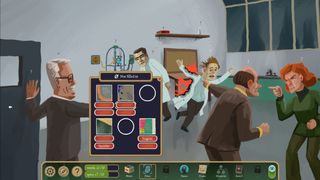
"Rather than each case getting progressively trickier, they instead make you think in new ways."
After each case has been completed, you unlock a chapter-specific piece of evidence that appears alongside the hub screen for that chapter – telephone call recordings, threatening letters, and the like. The first completed case also unveils solution cards that apply to the overall chapter. Often larger and more complicated than an individual case's solution cards, portions of this are revealed after each case, meaning you can start to get ideas down early and clean them up as you go.
Able to navigate between prior chapters and cases at any time from the menu, the further you get the more you'll find yourself using that as a way to double check prior information. The Rise of the Golden Idol is all about these connections, and having you lay down your own stepping stones on a path towards dreadful revelations. There's always little details in previous cases that can help inform later ones, and a greater emphasis on collecting those together for the chapter solution cards really capitalizes on that feeling.
While you might not always crack the case on the first attempt, The Rise of the Golden Idol does a great job with empowering you to noodle around and uncover the truth a little at a time, prompting you to read between the lines. At multiple points I felt my stomach drop as I realized my far simpler initial reaction to a case was something of a red herring, and the truth was something much darker and nastier. "Oh but what if…" I'd exclaim, hesitantly dragging in the new words to the solution card. A dinging noise rings out and the card reads "Everything is correct" but all I can say is "Oh no…", aghast at what it all means. The plot thickens.
Disclaimer
The Rise of the Golden Idol was reviewed on PC, with a code provided by the publisher.
Looking for more head-scratchers? Take a look at our best puzzle games for more. Want to collect words but shoot them at other people instead of dragging and dropping? Our Great God Grove review may be for you.

Games Editor Oscar Taylor-Kent brings his Official PlayStation Magazine and PLAY knowledge to continue to revel in all things capital 'G' games. A noted PS Vita apologist, he's always got his fingers on many buttons, having also written for Edge, PC Gamer, SFX, Official Xbox Magazine, Kotaku, Waypoint, GamesMaster, PCGamesN, and Xbox, to name a few.
When not knee deep in character action games, he loves to get lost in an epic story across RPGs and visual novels. Recent favourites? Elden Ring: Shadow Of The Erdtree, 1000xResist, and Metaphor: ReFantazio! Rarely focused entirely on the new, the call to return to retro is constant, whether that's a quick evening speed through Sonic 3 & Knuckles or yet another Jakathon through Naughty Dog's PS2 masterpieces.



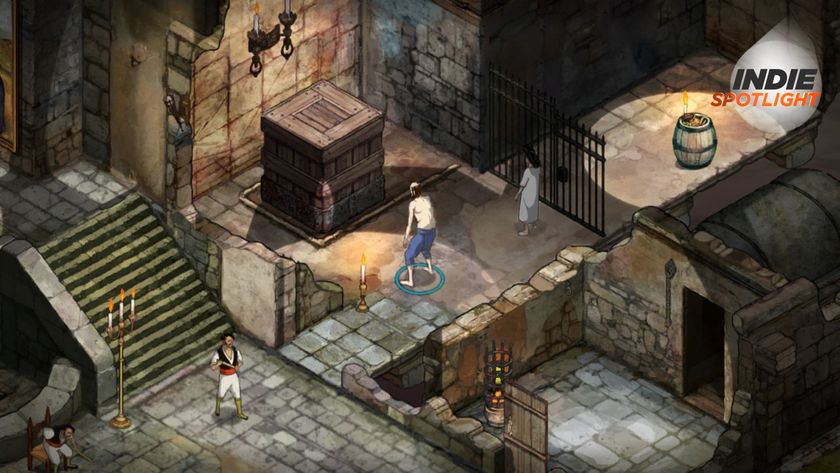


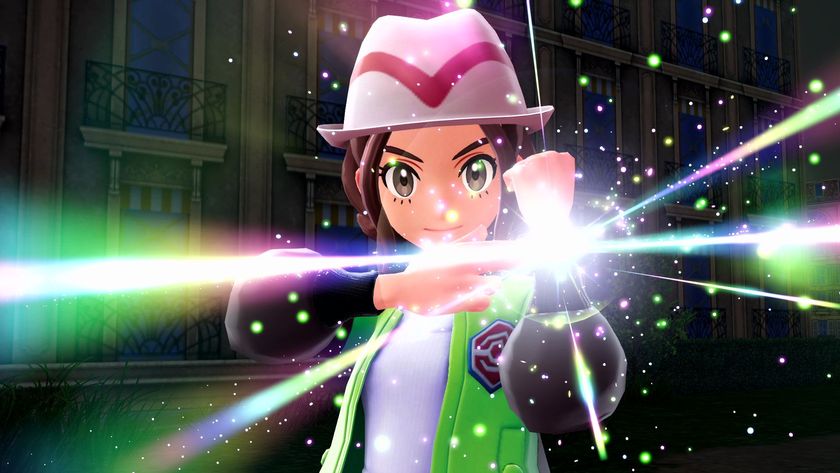










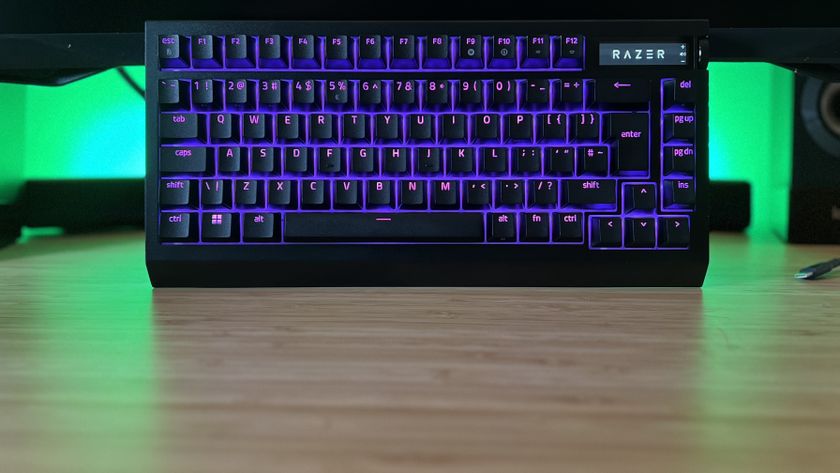
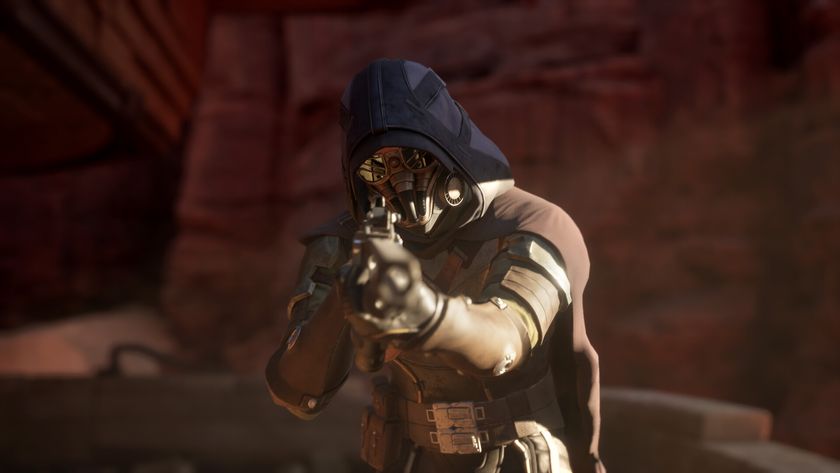
Dune Awakening launches for $50 without a stay in early access, and while the survival MMO "will not have a monthly subscription" it will have "optional" paid DLC

Witcher 3 and Cyberpunk 2077 studio CD Projekt Red won't make survival games just because they're popular, but Netflix's Edgerunners anime is fueling dreams bigger than RPGs

Linda Cardellini cast as Jason's mom, the original Friday the 13th killer, for Crystal Lake prequel series
